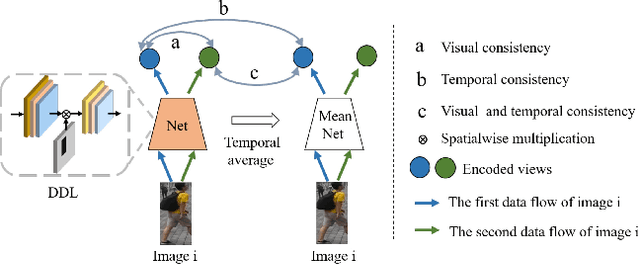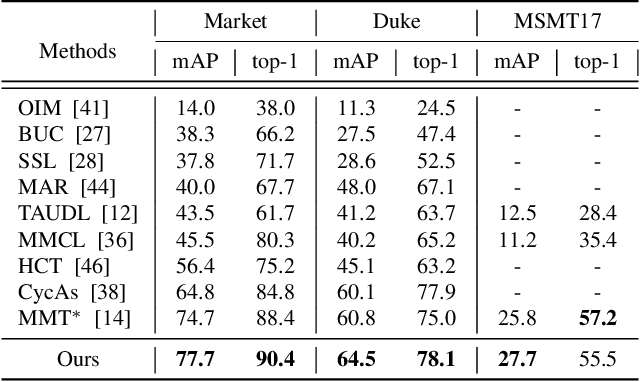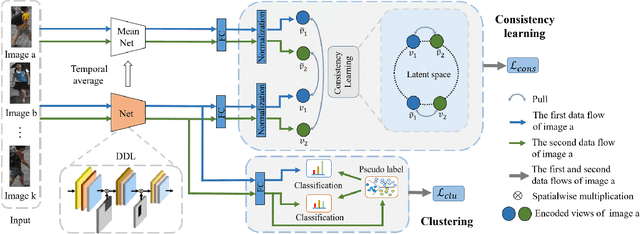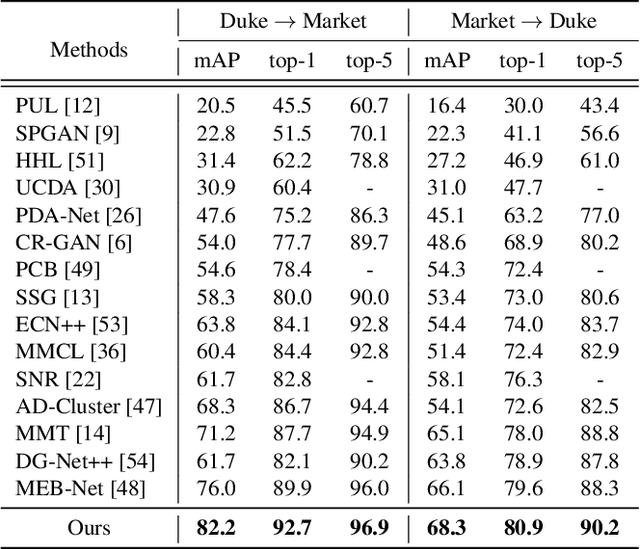Unsupervised Person Re-identification via Simultaneous Clustering and Consistency Learning
Paper and Code
Apr 01, 2021



Unsupervised person re-identification (re-ID) has become an important topic due to its potential to resolve the scalability problem of supervised re-ID models. However, existing methods simply utilize pseudo labels from clustering for supervision and thus have not yet fully explored the semantic information in data itself, which limits representation capabilities of learned models. To address this problem, we design a pretext task for unsupervised re-ID by learning visual consistency from still images and temporal consistency during training process, such that the clustering network can separate the images into semantic clusters automatically. Specifically, the pretext task learns semantically meaningful representations by maximizing the agreement between two encoded views of the same image via a consistency loss in latent space. Meanwhile, we optimize the model by grouping the two encoded views into same cluster, thus enhancing the visual consistency between views. Experiments on Market-1501, DukeMTMC-reID and MSMT17 datasets demonstrate that our proposed approach outperforms the state-of-the-art methods by large margins.
 Add to Chrome
Add to Chrome Add to Firefox
Add to Firefox Add to Edge
Add to Edge